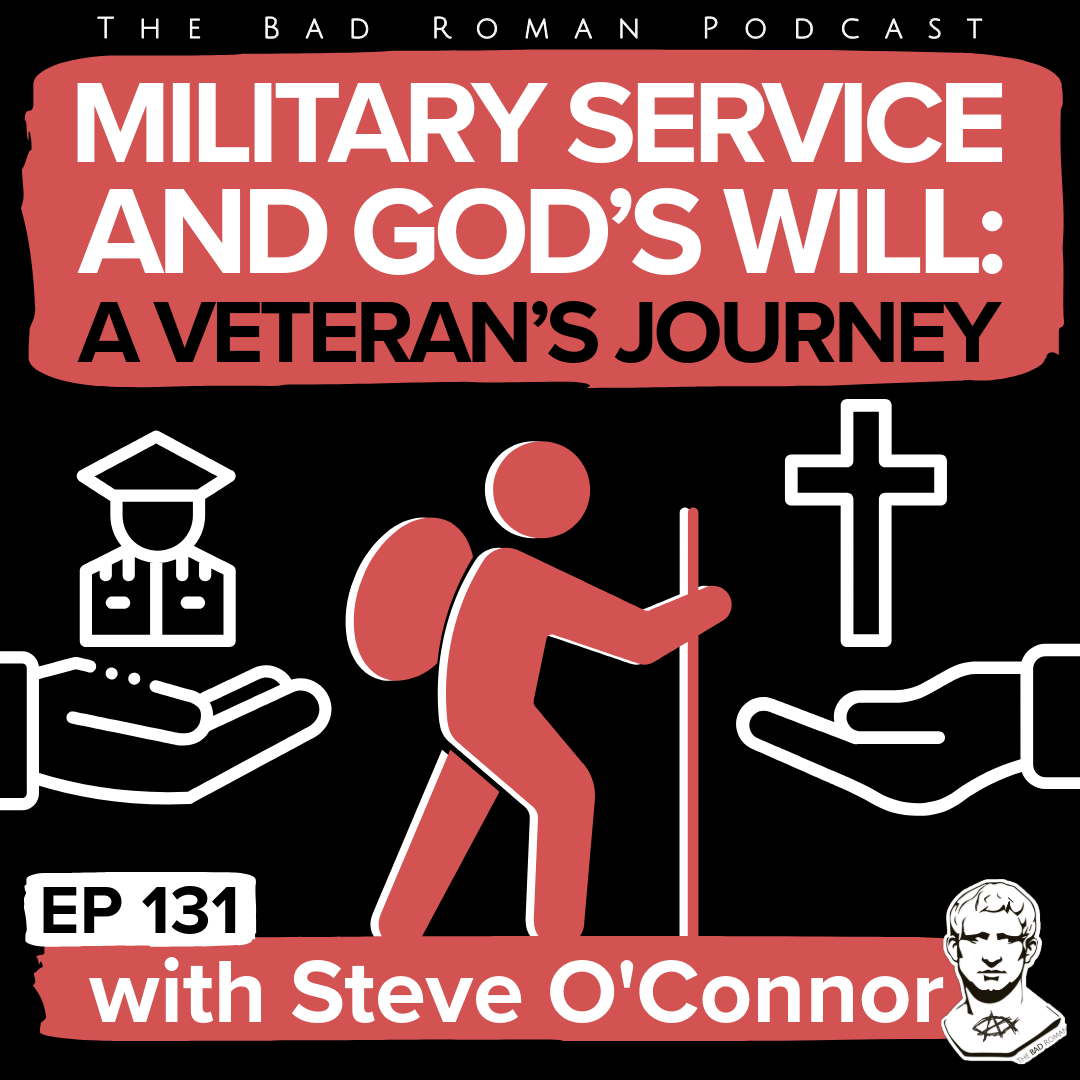About this Episode
Christian Zionism: A movement that's shaping global politics, yet many don't understand it. In our latest Bad Roman podcast episode, we dive deep into this controversial topic with UK Reverend Steven Sizer, a leading expert on Christian Zionism.
Together, Craig and Stephen define and explore Christian Zionism's profound influence on global politics, creation and support of the Israeli Occupation of Palestine, and stoking of tensions in the Middle East.
Stephen illuminates the historical roots of Christian Zionism, revealing that it predates Jewish Zionism by at least 50 years. This episode challenges listeners to reconsider the motivations behind political support for Israel and question whether religious beliefs are being used to justify geopolitical agendas.
Here are 3 key takeaways from our conversation:
The Origins of Christian Zionism: Explore how this movement has evolved and its current influence.
The Theological Misconceptions: Rev. Sizer challenges common interpretations of scripture that have led to unconditional support for modern Israel.
The Human Cost: We discuss the impact of Christian Zionist beliefs on Palestinians, including Christians in Gaza.
Listeners will gain fresh insights into the misinterpretations of key biblical passages, particularly regarding the Rapture and the distinction between the Israel of the Bible and the modern state of Israel. Reverend Sizer argues that many Christians have been led astray by these misinterpretations, resulting in a distorted view of Israel's role in modern times.
The episode also confronts the real-world consequences of Christian Zionist beliefs, highlighting the ongoing conflict in Gaza as a stark reminder of the human cost of uncritical support for Israeli policies. Reverend Sizer calls for a reevaluation of how these beliefs might be contributing to suffering and injustice.
The two discuss actionable steps for Christians to align their beliefs with the pursuit of peace and justice for all people in the Holy Land. This episode is a call to reflection and action, challenging listeners to approach Israel-Palestine with open minds, compassionate hearts, and a dedication to seeking truth and justice. This eye-opening discussion promises to transform your understanding of Christian Zionism and how its implications shape international politics and human rights issues. It's a must-listen for anyone seeking to understand the complexities of the land that is Palestine and the nation state of Israel.
Connect with Stephen Sizer:
Episode Timestamps:
(00:58) Stephen's Background and Journey
71-year-old retired Church of England minister
Evangelical conservative background
Transition from Christian Zionist beliefs to critical analysis
(02:14) Stephen's Ministry and Middle East Experience
Work in Eastern Europe during communist era
Involvement in Middle East, particularly Israel-Palestine issues
PhD research on Christian Zionism
(04:47) Stephen's Publications and Resources
Books: "Christian Zionism: Roadmap to Armageddon" and "Zionist Christian Soldiers"
Website: Stephensizer.com for free access to materials
(06:01) Defining Christian Zionism
Origins and development of Christian Zionism
Distinction between Jewish Zionism and Christian Zionism
Critique of Christian Zionism as an oxymoron
(10:20) Christian Nationalism and Christian Zionism
Exploration of the relationship between the two ideologies
Distinction between healthy patriotism and harmful nationalism
(14:14) Distinguishing Between Jews, Israel, and Zionism
Importance of separating criticism of Israeli policies from antisemitism
Discussion on demographics and support for Israeli policies among Jews
(22:20) Christian Support for Israeli Actions
Examination of Christian justifications for supporting Israeli policies
Critique of dispensationalist theology and its impact on Christian views
(27:26) Historical Context of Christian Zionis
19th-century origins and political motivations
Role of Christian Zionism in shaping Middle East policies
(35:06) Personal Experiences and Challenges
Stephen's encounters with accusations and intimidation
Church of England's response to Stephen's work on Israel-Palestine issues
(47:20) Encouragement to Continue the Dialogue
Importance of challenging Christian Zionist beliefs
Call for Christians to critically examine their views on Israel-Palestine
(55:24) Additional Resources and Support
Information on Stephen's website and publications
Introduction to Peacemakers NGO and its work
(56:38) Future Discussions and Collaborations
Potential for future conversations with other experts
Importance of ongoing dialogue on Israel-Palestine issues
(00:58) Stephen's Background and Journey
(02:14) Stephen's Ministry and Middle East Experience
(04:47) Stephen's Publications and Resources
Website: Stephensizer.com for free access to materials




















